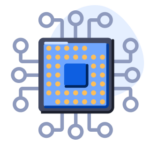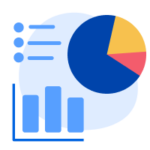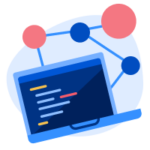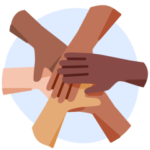As we get ready to start a new year, international students may be thinking about skills they want to develop. Below, we’ll focus on hard skills, also known as technical skills. Wondering how to tell if something is a technical, or hard skill? A hard skill is something that is typically job-specific and measurable. Investopedia further defines hard skills as “learned abilities acquired and enhanced through practice, repetition, and education.” Some examples of “hard skills” include programming languages, data analysis, or graphic design. Read on to learn which ones made our list of important hard skills for 2024!
Tip: While “hard skills” are typically job-specific, “soft skills” are interpersonal, and include examples like teamwork, communication, and leadership.
ApplyBoard can help you achieve your study abroad dreams. Use our free platform to find a study program in Australia, Canada, Ireland, the United Kingdom, or the United States which matches your academic goals.

Cybersecurity
In their list of hard skills to build in 2024, Forbes highlights cybersecurity. More and more organizational data is stored digitally, whether on local servers or in the cloud. This can make services and data vulnerable to electronic attacks like hacking or phishing.
Whether it’s patient information, credit card numbers, or public utility security, cybersecurity is crucial to a wide variety of industries. (Cloud computing also made the 2024 Forbes list, highlighting the need for employees who can help companies shift data from physical records or local storage to a cloud service.) As such, new grads with the ability to keep company data safe, and who can train others in cybersecurity will be sought after.
Programs at both university and college levels specialize in cybersecurity. The program you choose may change which roles you’re eligible for. For example, a shorter certification may qualify you for a junior cybersecurity analyst or IT support specialist role, where university graduates become cybersecurity architects and forensic data managers. Some computer science graduates also move into cybersecurity roles.
The National Academy of Engineering and National Research Council shares another benefit of building these skills, noting: “technologically literate people will tend to be more comfortable dealing with technologies that their jobs demand and will find it easier to master new technologies as they come along.” This adaptability has the ripple effect of helping people feel connected with their work and community, improving their quality of life.

Data Science and Analytics
Although some may look at this skill and wonder how it relates to their future career, the ability to look at collected data and make corresponding decisions is something that is useful in most disciplines. To best understand data science, students should have a strong foundation in math, statistics, and programming. To better apply data in a business setting, an understanding of business concepts from recruitment to risk mitigation is helpful.
As businesses collect more data, and as generative AI tools create data faster, data scientists are in more demand than ever. These team members can help to prevent fraud, minimize risk to the business, improve customers’ experiences, and ensure that the right product is being sold at the right time to its ideal customer.
Considering a career in data and business analytics? Our Careers of Tomorrow post can help you assess which university and program might be right for your studies.

Generative Artificial Intelligence
Although generative artificial intelligence (Generative AI) has many uses, using its capabilities to solve problems is where new grads can really shine. Usually, careers in developing AI requires data science and analytics knowledge, as well as software engineering, statistics, and computer programming skills. However, generative AI engines, like ChatGPT, Bard, or Jasper are being used across industries by people with many different kinds of qualifications to speed up content creation, run chatbots, or even check math proofs.
Did You Know? Strong communications skills are a key strength when using these tools: prompting the AI with the most effective language, as quickly as possible, has led to unexpected partnerships between tech companies and poets!
Want to build generative AI tools? To get the skills you’ll need, start with an undergraduate degree in a field like computer science or math. Higher-ranking roles may require a postgraduate degree in a related subject. Other roles may involve building ethical guidelines into AI models, where a legal background is helpful, or using a background in the arts or humanities to improve the quality of generative AI tools’ output.
Employers also look for candidates who show personal initiative. So, joining events like hackathons can help your resume stand out when seeking an internship, or when applying to full-time roles as a new grad.

Talent Acquisition and Retention
Many businesses are focusing on maintaining and growing their workforce. So, grads with talent acquisition and retention skills will be in high demand. Human resources (HR) professionals who can use data to address hiring gaps, develop employee wellness strategies, and engage candidates and existing employees remotely will excel in the year to come, as companies continue to compete for top candidates.
To work in talent acquisition, most companies require an undergraduate degree in human resources, business, finance, or communication. Experience in operations or customer service is also helpful for building an understanding of business principles and strategy. Students who are perceptive and empathetic can also excel in these HR roles.
Which trends shaped international education this year? From interest in health studies to greater focus on employability, our ApplyInsights team shares key trends.

Sustainability Skills
Rising up the ranks on a number of top-skills lists is sustainability literacy. As the world clocks its hottest year on record, companies are seeking employees who can help their organization decrease its ecological footprint, while staying competitive. Understanding how to guide a business towards a net-zero goal is becoming essential for many companies.
Wondering how to train for a career in sustainability? Many fields of study can be helpful. For example, a background in engineering could lead you to a job where you’re designing tools to prevent groundwater runoff, or improve active transportation options. Studying political science or other humanities could prepare you to work with cities developing sustainability plans. Many business programs also include a specialization in sustainability. Alternatively, a law degree can prepare you to tackle some of our planet’s biggest challenges as sustainability regulations evolve.

Of course, these are just a short list of key hard skills to develop as an international student in 2024. Many skills employers seek are more transferable from role to role, and include things like communication skills and project management. We’ve counted them down in our other post on top “soft skills” or interpersonal skills to develop in 2024.
Ready to start your study abroad journey? Find the right match with the ApplyBoard Platform! Over 100,000 programs are available now.



